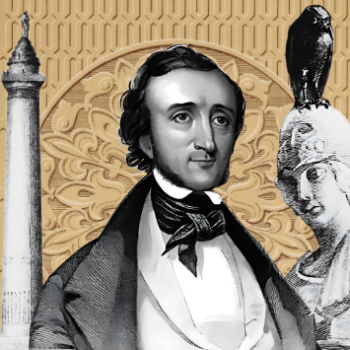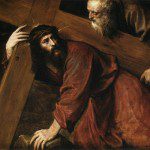If one of the principal hallmarks of Emergence in general is a chariness about institutions, then just as surely an increasingly more Orthodox or eastern understanding of the Trinity is likewise a principal hallmark of Emergence Christianity in particular. That is to say that Emergence Christianity is far nearer to the position of a co-eternal, co-equal triune, indivisible Godhead than, in all probability, has been any other form of Western Christianity in a thousand or more years; and that shift will have enormous repercussions for the Church, including its validation of an increasing Pentecostal and charismatic form of praxis and belief. The Age of the Spirit has come, just as many of the mystics had promised it would. Authority will rest not only in scripture, as Luther and Protestantism had argued, but also in the intentions of the Spirit as they are revealed to, and discerned by, the devout in prayer and in congress with one another. It is a shift of historic proportions.
Perhaps the most dramatic change, however, is in the conceptualizations of "kingdom" that have entered the conversation with the coming of Emergence, changes in how "kingdom" itself is to be understood or envisioned. If God is a perichoresis that dances in us human beings and through us and with us, then the dance is not about us. It is about the Whole, about some mystery that is palpable but not subject to dissection or even to naming. It is not about any particular one of us as separate from, or independent of, any of the rest of us. It is all of us in aggregate, for none of us is in any other way than in aggregate. It is the dance, and we are both the dancers and the music.
Within this understanding, then, only radical obedience, like radical trinitarianism, makes sense. To not lose all for the sake of this perichoresis is to be unworthy of it, just as we were told by Him 2,000 years ago. Nor is the kingdom some kind of top-down, political structure. Such, Emergence Christianity says, is indeed the false imaging that has strangled the faith and the faithful for long enough. No, the kingdom is a lacework of inter-connected and equi-connected nodes or pods, like a spider's web that vibrates when any one of its strands is touched . . . like the internet when any one of its sites makes contact with millions of other nodes, and reality is changed thereby. The kingdom is horizontal, not hierarchal. It is here, and it is now. Most certainly, it is not over there and later.
Such a re-definition of the kingdom is a direct challenge to the established definitions of many Western Christians and communions. Moreover, because it is a self-aware and well-argued challenge, it will also be a provoking one that demands engagement from older communions within the larger body. Inevitably, of course, each one of those older communions will be changed to some greater or lesser extent by the very engagement itself. More to the point, however, at least in terms of the Latinized Church's near future, is the fact that shifts in understanding or belief about the Trinity and about the Kingdom both rest upon, and demand, a new anthropology. One of the ironies of Emergence, both civil and sacred, is that we have come into a time when we no longer know what a human being is. We can neither describe consciousness or its etiology nor even justify its ancient claim to being imago dei.
Descartes' famous Cogito ergo sum may have consoled 400 years of our recent cultural and religious history, but it is now jestingly referred to as "René's Folly" or the "Cartesian Error" for good reason. And knowing not who we are or how constructed, nor by what means organized, makes us more like unto Adam in the Garden wearing a fig leaf out of new-found modesty than Christians have been for many a century. It ultimately may be, then, this questing for a new anthropology that history will later say of us was our greatest burden and our greatest gift as the Church marches into yet another new millennium.
Phyllis Tickle is a renowned author, editor, and lecturer. Once the academic dean for the Memphis College of Art, she became a trailblazer in the fields of Christian publishing and ministry, as a founding member of the Canterbury Roundtable and the founder of the Religion Department for Publishers Weekly. Winner of several of the most prestigious awards in the publishing world, and holder of two honorary doctorates, she has authored over two dozen books in American religion and spirituality, including a series on fixed-hour prayer and her recent book, The Great Emergence, documents the appearance and development of emerging forms of Christianity in the postmodern context.




